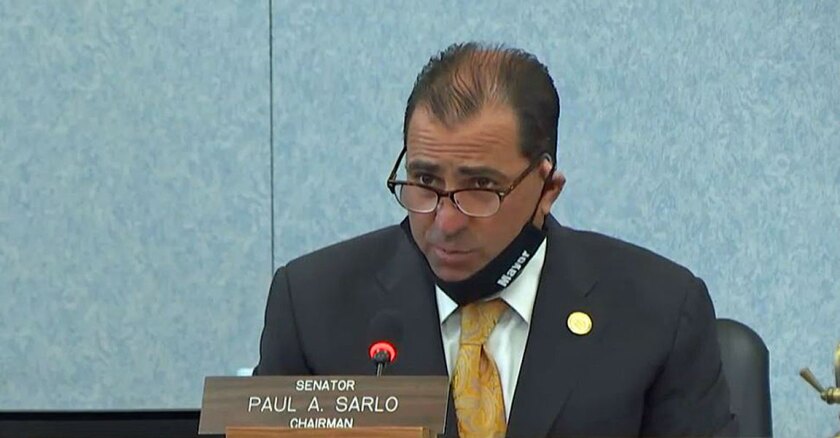The New York City controller was first out of the chute with a call to divest the city’s pension funds of its Russian assets. Then California, Colorado, Connecticut, Kansas, Illinois, New Jersey and New York state politicians quickly pounced, and more have followed. On principle, the moral imperative is unarguable: Anything we in the NATO alliance can do to starve the leeches in the Russian economy is worth consideration.
But as with vodka, where most of the product consumed in the U.S. is actually manufactured everywhere but Russia, appearances and feel-good pronouncements can be deceiving. So let’s be sure we learn from the past before we pull the plug on sunken capital previously invested in Russia and its companies. Moreover, let’s not go overboard with counterproductive laws prohibiting investments in domestic companies doing business in Russia.
For starters, there is almost no reason not to adopt a pension-fund policy that requires divestment from Russia itself and Russian companies — but within a sensible time period. Immediate divestment could run the risk of fire-sale liquidations that only enrich the very people, Vladimir Putin’s cronies, who we’re trying to punish by allowing them to scoop up assets on the cheap.
Don’t kid yourself, there are plenty of gold bars and other fungible assets still hiding inside Russia that can be used to trade for the stocks and bonds that American public pensions now want to dump as the ruble plunges to below a penny in value. And taking the next step to prohibit pension investments in U.S. companies that do business in Russia is a doomed policy: Many of those companies are already retracting from business there, without the need for state legislators to try to micromanage pension portfolios. History has shown the financial folly of such feel-good legislation.
Nobody knows how long this conflict will last, and beyond that, how long Putin and Co. will remain in the global penalty box — or still in power for that matter. Nobody knows how or when the economic sanctions will end. But we do know from past experience that by announcing their intentions in public, as they must by law, public pension funds are sitting ducks for front-running by crafty, amoral traders. It happened before, when the South Africa divestment movement gathered steam, and then again when all the public funds decided to re-invest in the same companies doing business there that they once eschewed. Public pension funds are upright, but they are rarely nimble in the capital markets, and therein lies an opportunity for profits by scalpers.
Yes, it can be argued that “this time it’s different.” And indeed that may be the case. In this episode, it is plausible that much if not most of the plunge in Russian stock and bond values has already occurred, so the bottom has already been reached and the losses are already crystalized. Shares in many Russian exchange-traded funds are now going for just 10 to 25 percent of their market value a month ago. It is conceivable that Russian valuations will not come back for decades, or at least not until such time as Putin is no longer around.
So the potential rebound from this investment fire sale may not occur any time soon, and possibly well after the terms of today’s politicians and pension trustees. What haunts me are the dark 19th-century words of Baron Rothschild: “The time to buy is when there is blood on the streets.” The perplexing question for pension trustees, therefore, is whether that cynical grave-dancer adage ultimately applies to Ukrainian — or to Kremlin — blood.
Trivial Pursuits
For perspective, Russia is just a tiny sliver of most public pension accounts. Russian bonds typically are held in “emerging markets debt” portfolios, which as an asset subclass are only a few percent of pension asset totals, and they have already taken their write-down in the public markets. On the stock side, the largest Russian companies whose shares are traded in capital markets are the petroleum and banking firms, and they too have already taken a huge market hit. So what’s left now as a percentage of a pension fund’s investment assets is increasingly trivial.
Aside from individual Russian stocks and bonds, many public pension funds are invested in index funds, and the index companies are already disowning Russia. The popular MSCI Europe-Australasia-Far East (EAFE) index, for example, is reportedly among those abandoning Russian stocks, so pension funds that simply invest in that or another EAFE index fund don’t need to take any action; divestment will likely occur automatically as a function of the index itself.
For active pension portfolio managers, it looks like some of the more astute and nimble ones bailed out of their largest holdings before the prices plunged in late February. The Kentucky teachers’ pension system’s managers, for example, sold their fund’s holdings in Sberbank of Russia on Feb. 23, a day before the invasion. What others may still hold now is damaged goods, and trustees would be wise to give them a little time to unwind their losing positions if the impact would be material to the pension fund’s overall performance. But otherwise, in many plans, the equity sliver still left that’s in Russian assets may be less than a rounding error in their performance measurements, in which case the harm of belated dumping is now a moot point.
As for the U.S. and international bond funds that hold Russian assets, there are several investment managers who were “caught swimming naked when the tide went out,” as Warren Buffett likes to put it. Reuters reported on the Russian-related holdings of several prominent international bond managers as of Feb. 24, which is probably as good a starting point as any for measuring the financial carnage from the invasion and resulting sanctions. I’m not here to pick on anybody, but only to report that the asset managers for pension funds invested in those holdings could have some explaining to do at future trustee meetings.
A few public plans may also be trapped with Russian real estate they cannot readily divest. CalPERS, the nation’s largest public pension fund, reportedly holds $345 million in illiquid Russian real estate. Probably the only way to flush that position immediately would be to call an oligarch, which makes onlookers unhappy.
Almost every pension fund also has investments in U.S. and European companies that sell products or services to people in Russia. More than 300 multinational firms have pulled out since the invasion began; more companies are leaving every day, but some will stay. These are not Russian companies. For states to blacklist the rest and mandate that only “Russia-free companies” can now be investable, as proposed in Florida, would be a fool's errand.
The Wisdom of the Long Game
In the grand scheme of public pension fund portfolios, Russia was never a big cheese. It was a sliver, and in many cases a sliver of a sliver. So pensioners certainly should not be worried about the financial fallout of this human tragedy having an impact on their monthly checks. They are far more likely to be impacted by the inflationary side effects of global petroleum-market disruption. In most cases, pension trustees can take a public policy position to require divestment of any actively managed accounts from Russian holdings over a reasonable transition period and leave the timing to professional managers. And if holdings are so trivial that immediate action or a market reversal simply won’t move the needle, then trustees could by all means act immediately without regrets.
Realistically, nothing that any public pension fund does now will have a meaningful impact on the Russian economy or its leadership. So it’s wiser to play the long game on any major holdings, which still provides opportunities for snappy newspaper headlines, TV sound bites and feel-good constituent letters without selling emotionally at rock bottom. For many, a Dec. 31 extrication deadline would be sufficient, perhaps with a directive to trim Russian holdings by X percent by Independence Day in the U.S., which seems like a fitting symbolic date to pick in solidarity with Ukraine.
A final thought: While revisiting holdings in Russia, shouldn’t trustees also be grilling their portfolio managers and internal staff about investments in other autocratic states? China comes to mind immediately, but there are others — not to mention OPEC, which hasdeclined to pump more to supply alternatives to Russian oil, thereby providing Putin’s trump card over the European Union. And what about nations like India that have ducked admonishment resolutions in the U.N.? At this point, the bigger unresolved investment-policy question may be who’s with us or against us — a litmus test that may ultimately become a surrogate for long-term geopolitical risk management.
We’ve now clearly seen what can happen to the domestic economy of a cold-blooded megalomaniac. Today’s investment lessons from Russia are an echo of the ones that previously overconfident money managers painfully learned in Venezuela and Libya. Without turning us all into isolationists, that may actually prove to be the more important policy dialog in years for public pension trustees, their staffs, their consultants and money managers.
Governing's opinion columns reflect the views of their authors and not necessarily those of Governing's editors or management.












